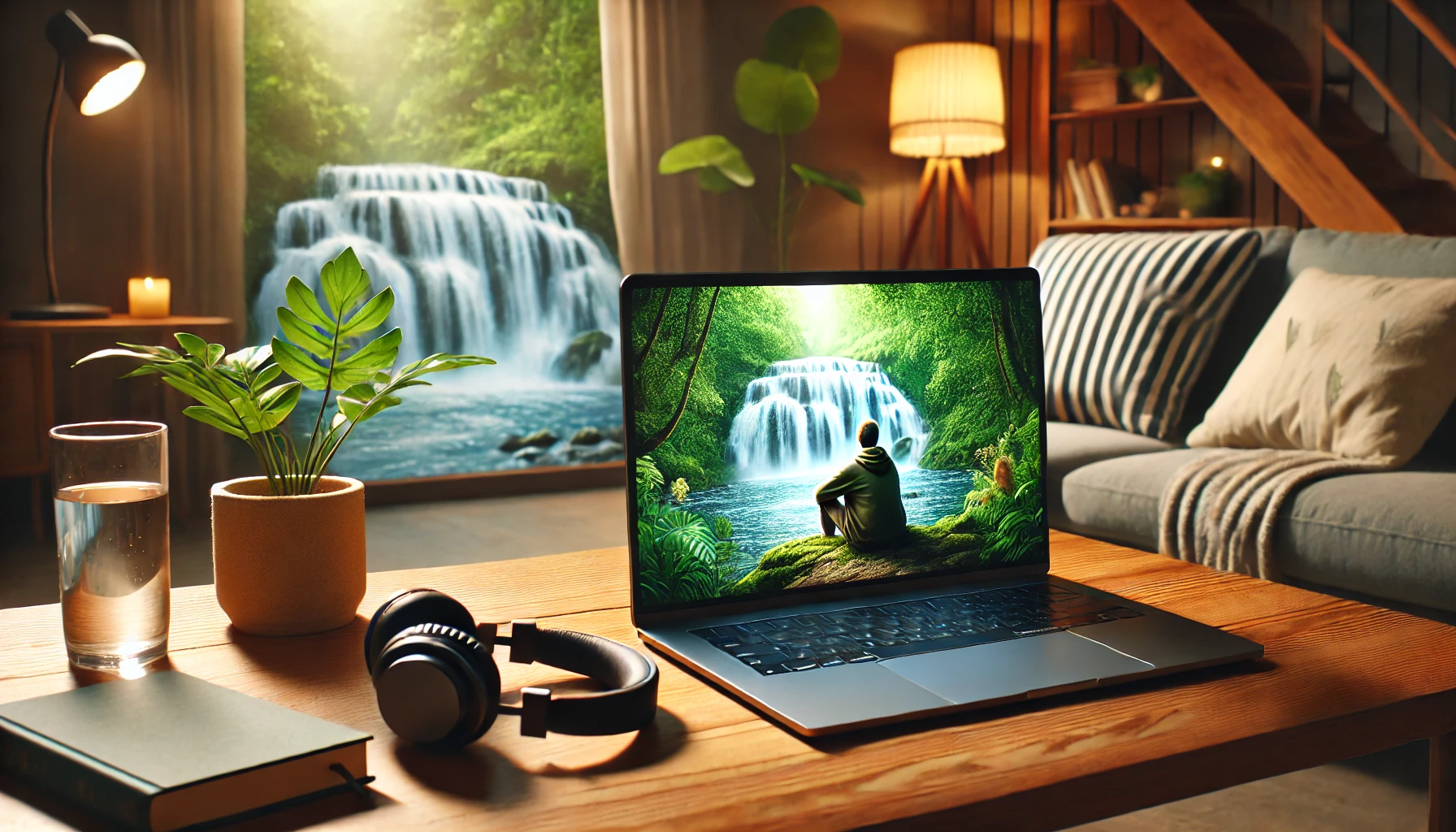Feeling tired, overwhelmed, or mentally drained? These are signs that your brain needs a restorative break. The traditional eight-hour workday, rooted in industrial-era work patterns, often leads to mental fatigue, making restorative breaks essential for maintaining productivity and well-being. Restorative breaks are more than just stepping away from your desk; they are intentional pauses that help recharge your mind and body. Whether it’s a quick activity or a structured habit, the right break can improve focus, reduce stress, and boost productivity. Most people struggle to maintain deep focus for the full eight hours and benefit from regular breaks throughout the day. Free time outside of work hours, such as evenings, weekends, and vacations, is also crucial for replenishing energy and supporting overall well-being. Here are 11 effective ways to take restorative breaks and feel truly refreshed.x
Types of Restorative Breaks: Micro Breaks for Improved Focus
When it comes to maintaining mental energy and preventing mental fatigue, not all breaks are created equal. Micro breaks—short breaks lasting just 5 to 10 minutes—can make a remarkable difference in your ability to focus and sustain high performance throughout the day. These quick pauses are essential for anyone who spends long hours on focused work or deep work, as they help reduce stress and keep your mind sharp.
Micro breaks are simple to incorporate into your routine. Every hour or so, step away from your current task and do something that allows your brain to reset. This could be a quick walk around your office, a few jumping jacks to get your blood flowing, or a few minutes of deep breathing to calm your nervous system. Even listening to a favorite song or spending time looking out the window can help restore your sense of well-being and reduce distractions.
Research in experimental psychology and attention restoration theory shows that these short breaks are powerful tools for restoring directed attention. When you give your brain a chance to rest, you’re better able to return to your work with renewed focus and creativity. Over time, regular breaks—both micro and longer breaks like a meaningful lunch break—help prevent burnout and support your mental health.
Longer breaks, such as taking a full lunch break or spending time in nature, offer even deeper restoration. A walk in a park nearby or simply listening to the sounds of nature can help your brain recover from extended periods of concentration, reducing fatigue and boosting your overall performance. These restorative moments are essential for maintaining balance and supporting your ability to process tasks and generate new ideas.
Ultimately, taking breaks—whether short or extended—is not just about stepping away from work. It’s about giving your brain and body the chance to recharge, reduce stress, and maintain a healthy routine. By prioritizing both micro breaks and longer periods of relaxation, you can improve your productivity, enhance your creativity, and support your overall well-being. Find a break routine that fits your life, and you’ll notice a significant improvement in your energy, focus, and sense of balance.
1. Take a Walk in Nature
Nature has a unique ability to calm the mind and rejuvenate the body. Walking outside, even for a short period, helps clear your thoughts, reduce stress, and restore your focus. Studies show that spending time in nature enhances attention and problem-solving skills by allowing the brain to shift into a state of effortless attention. This break is especially effective after long periods of deep focus or mental fatigue.

To make the most of this break, find a green space nearby, such as a park or garden. Pay attention to the sights and sounds around you, like the rustling of leaves or the chirping of birds. This connection to nature can help reset your mental state, leaving you feeling more grounded and energized. Incorporating such breaks into your day aligns well with Weekplan’s focus planner, which helps you balance productivity with moments of calm.
2. Practice Mindful Breathing
Mindful breathing is a simple yet powerful way to reduce stress and improve mental clarity. It involves focusing on your breath to anchor yourself in the present moment, which can be especially helpful during hectic days. Unlike passive breaks, mindful breathing actively engages your mind, slowing down your heart rate and calming your nervous system. To practice mindful breathing, sit in a comfortable spot and close your eyes. Inhale deeply through your nose for four seconds, hold your breath for seven seconds, and exhale slowly for eight seconds. Repeat this for five to ten minutes. Even a short session can have a noticeable impact on your mood and focus. Use Weekplan’s time management software to schedule these breaks, ensuring they become a regular part of your routine.
3. Take a 20-Minute Power Nap
A quick nap can work wonders for your energy and productivity. Research shows that a 20-minute nap boosts memory, creativity, and alertness without leaving you groggy. This makes power naps an excellent option for combating the mid-afternoon slump or regaining focus during long workdays.

To take a restorative nap, find a quiet, comfortable space where you won’t be disturbed. Set an alarm for exactly 20 minutes to avoid oversleeping. Timing is crucial; napping for too long can lead to sleep inertia, which may leave you feeling more tired. Weekplan’s tools, such as the weekly planner, can help you block out time for these rejuvenating breaks.
4. Engage in Light Physical Activity
Physical activity during breaks helps release tension and improve circulation, making you feel more refreshed and alert. Simple stretches, yoga, or a short workout can alleviate the stiffness caused by prolonged sitting while boosting endorphin levels. To integrate movement into your day, start with basic stretches or yoga poses, such as the child’s pose or downward dog. If you prefer, take a brisk walk or climb stairs for a quick energy boost. Use Weekplan’s habit tracker to set reminders for these physical breaks and stay consistent.
5. Watch or Listen to Nature Sounds
If heading outdoors isn’t an option, immersing yourself in nature through videos or audio recordings can be just as restorative. Listening to soothing sounds like waterfalls, rustling leaves, or chirping birds triggers a relaxation response, helping you feel more centered.

To try this, play a nature soundtrack or watch a short video of serene landscapes during your break. These moments can transport your mind away from stress and create a sense of calm, even in busy environments. Weekplan’s goal-setting tools can help you incorporate such breaks into your schedule seamlessly.
6. Use Breaks to Process Tasks
Sometimes the best way to refresh your mind is to step back and reflect on what you’ve accomplished. Processing tasks during a break gives your brain the space to organize information, generate insights, and prepare for the next challenge. To make this break effective, jot down notes about what you’ve completed and identify what’s next. Use tools like Weekplan’s task management software to review your progress and realign your goals. This approach not only clears mental clutter but also boosts your sense of achievement.
7. Enjoy a Meaningful Lunch Break
A meaningful lunch break goes beyond simply grabbing a quick meal. It’s an opportunity to step away from work, enjoy your food, and recharge for the rest of the day. Eating mindfully, without distractions, improves digestion and enhances your overall sense of well-being.

To make the most of this time, find a quiet space to eat and avoid multitasking. Focus on the flavors and textures of your food. If possible, spend this time connecting with colleagues or friends to add a social element to your break. Weekplan’s team planning tools can help you coordinate lunch breaks with your team for a more fulfilling experience.
8. Read a Book or Journal
Reading or journaling during breaks provides mental stimulation while giving your brain a break from work-related tasks. Whether it’s a motivational book or a personal journal, these activities allow you to explore ideas and reflect on your thoughts. Set aside 15 minutes to read a few pages or write about your day. Journaling can help you process emotions, clarify goals, and track progress. Weekplan’s journaling features make it easy to maintain this habit, encouraging self-reflection and personal growth.
9. Listen to Music or Podcasts
Music and podcasts are excellent tools for taking a break. Music can help regulate emotions, while podcasts can inspire new ideas and broaden your perspective. These activities are especially helpful during low-energy moments or repetitive tasks.

Choose music or podcasts that match your mood and energy level. For relaxation, pick calming instrumental tracks; for motivation, opt for upbeat songs or inspiring podcast episodes. Weekplan’s flexible planning tools let you schedule these enjoyable breaks into your day effortlessly.
10. Step Away from Screens
Screen time can cause eye strain, mental fatigue, and decreased focus. Taking breaks from screens is crucial for your overall health and productivity. These breaks allow your mind to rest and your body to recover from prolonged sitting. For every hour spent on screens, take a 5-10 minute break to rest your eyes and stretch. Look out a window, practice light exercises, or simply close your eyes to relax. Weekplan’s time-blocking features can remind you to take regular screen breaks, ensuring you stay productive without burnout.
11. Do Nothing
Sometimes the most restorative break involves doing absolutely nothing. Sitting quietly and letting your mind wander helps boost creativity, reduce stress, and provide mental clarity. It’s a simple yet effective way to recharge without any effort.

Find a peaceful spot and sit comfortably for 10-15 minutes. Resist the urge to plan or think about work. This unstructured time gives your brain a chance to rest naturally, aligning with Weekplan’s emphasis on balancing action with rest.
Conclusion
Taking restorative breaks isn’t just a luxury—it’s essential for maintaining productivity, focus, and well-being. Whether it’s a quick walk in nature, mindful breathing, or simply stepping away from your screen, these 11 practices can help you recharge and stay on top of your game. Weekplan’s tools and features make it easy to integrate these habits into your daily routine, ensuring you maintain balance and efficiency.
Frequently Asked Questions (FAQs)
1. What are restorative breaks?
Restorative breaks are activities that help you recharge mentally and physically, improving focus and productivity.
2. Why are restorative breaks important?
They reduce stress, prevent burnout, and improve overall performance by giving your brain time to recover.
3. How long should restorative breaks be?
Breaks can vary, but 15 to 20-minute breaks are often effective. For quick resets, even 5-minute mindful breaks work.
4. How can I schedule restorative breaks with Weekplan?
Weekplan’s time tracking tools allow you to plan regular breaks and monitor productivity.
5. Can restorative breaks help with creativity?
Yes, stepping away from tasks often sparks insightful ideas and promotes innovative thinking.
6. What’s the best kind of break for reducing stress?
Mindful breathing or nature walks are highly effective for lowering stress levels.
7. How can I stay consistent with breaks?
Use Weekplan’s habit tracker to create a routine and track your progress.
8. Are screen breaks necessary?
Yes, regular breaks from screens reduce eye strain and help maintain focus throughout the day.
9. How do restorative breaks improve brain function?
They allow your brain to recover from deep focus, reducing fatigue and improving memory and problem-solving.
10. Can Weekplan improve my break routine?
Absolutely, Weekplan’s features help you schedule meaningful breaks and maintain a balanced work-life routine.

More Posts
Goals vs. Objectives - What Is the Difference?
Suppose you are a businessperson running an enterprise or have a strategic plan to start a new venture. The two most important terms you will come across are goals and objectives. Every business...
Top 10 Time Management Tips for Teachers
Dealing with your time in this quick-moving world can be an exceptionally troublesome undertaking. Have you ever heard the expression, “An instructor’s work is rarely done?” Well, that state practically summarizes it. Teaching...
How Digital Workplace Improves Productivity
Is your association’s work done under the average settings inside dividers of an actual space wherein your representatives possess their seats during the customary available time? If so, it’s the correct time you...
Productivity Plan: What Is It and How to Create It?
On the journey to be productive, you may encounter several obstacles. You may focus fruitlessly on trivial tasks rather than important ones. You might fall into the trap of being busy instead of...